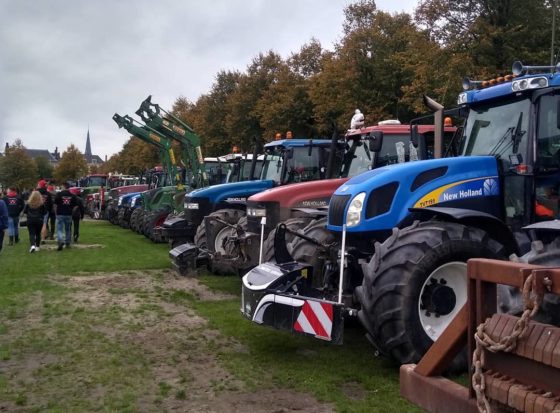Could forced farm buy-outs solve the nitrogen emissions crisis?


One solution to reduce the Netherlands’ nitrogen compound emissions would be for the state to buy out farmers, experts have told the NRC.
Although an expropriation policy would be politically sensitive and would cost some €2 to €3 billion, laws already exist for the state to take over land and it could then simply be given over to nature rather than farming.
In 2019, the highest Dutch court ruled that the state was miscalculating building-related emissions, meaning it needed to do more to limit the release of pollutant gases such as ammonia, which also arise from animal waste. These can affect the quality of the nearby ground and water.
Hundreds of building projects, which also produce harmful nitrogen compound emissions, were put on hold, despite the Netherlands’ desperate need for housing. Speed limits were also reduced to 100kph on highways during the day to reduce vehicle emissions.
By 2030, half of the Netherlands’ ‘vulnerable’ land must have healthy levels of these pollutants and by 2035 the levels need to be almost three-quarters less than they were in 2019, reports NRC.
Although the state has offered farmers money to quit, only 280 pig farmers have stopped so far, rather than the expected 500.
Jacques Sluysman, an expert in expropriation – the state takeover of land – at Radboud University Nijmegen told the NRC that ‘expropriation almost always goes ahead’ and suggested that such action would take on average two or three years. Farmers would be fully compensated, including for their assets and lost income, he suggested.
A spokesperson for the agriculture ministry told the NRC that expropriation was ‘one of the instruments that could be used to achieve a reduction in nitrogen [compound] emissions’ but farmers group LTO Nederland believes that this would spark huge amounts of anger in a farming sector that has already spent months demonstrating about nitrogen compound policy and restrictions on their work.
Thank you for donating to DutchNews.nl.
We could not provide the Dutch News service, and keep it free of charge, without the generous support of our readers. Your donations allow us to report on issues you tell us matter, and provide you with a summary of the most important Dutch news each day.
Make a donation